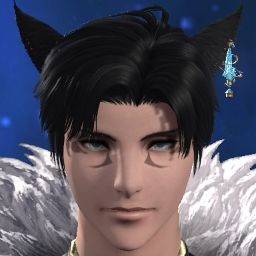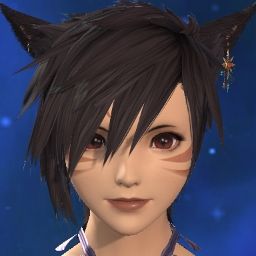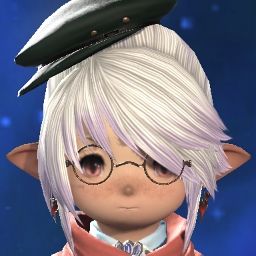Hello all,
A fire is burning hot, so I've put aside the Phase 4/2.0 work to attempt and quell the flames. Hopefully this doesn't end up making the fire bigger. It has been several weeks since I've seen my newborn awake. The long nights and weekends are beginning to take their toll on both my body and sanity. But, I want to make sure that you guys are informed. I don't want to pull the good 'ol "we'll ignore them and they'll go away" tactic, because as a player myself, I absolutely hate it when devs do that. It's a copout (though, as a dev, I can kind of understand why they do it...being called "an ignorant [insert colorful explicative here]-tard" by a nameless shadow in front of the entire world wreaks havoc on the soul).
So, on to the meat that goes with the potatoes:
First off, the decision to go with the numerical naming conventions for spells was NOT because we think American gamers are irreparably dimwitted or somehow less skilled than their Japanese counterparts. There was a time when an 'easy' version of a certain FINAL FANTASY was released because it was believed the American market couldn't handle the JRPG difficulty level. That age is long behind us. There is no hidden agenda to rub mud in the face western players in general. The LOC team is made up almost completely of westerners, and if anyone tried to do that here at SQEX, we would be the first in their faces.
If the decision the EN team made on this particular issue has led some players to believe they are being slighted, then for that I apologize. That was never our intention.
This also wasn't an attempt to cater the game specifically to WoW players, Rift players, Star Wars players, Mabinogi playaz, etc. Our fearless producer has stated in the past that we are not targeting a single player base. We are targeting everyone. We want FINAL FANTASY XIV to be enjoyed by as many people as possible.
The decision to go with the I, II, III system was merely an attempt by the EN team to make the naming system a bit more intuitive so that it might better achieve that goal.
I don't need to tell you that MMORPGs are different from turn-based RPGs in that in the heat of battle, split-second decisions need to be made. There's no time to stop and think. No pause. Anything that is going to give you an advantage, no matter how slight, will be a benefit in the long run. That's not to say, however, a game should be dumbed down because of that.
And here's where logic takes us: There is a big difference between challenging and difficult; or more specifically "challenging but intuitive" and "difficult because it's not as intuitive as it could be."
The choice by the LOC team to go with I, II, III, IV instead of -, -ra, -ga, -ja was an attempt (whether the best one or not is still up for debate) to have a naming system that leaned towards the latter.
After looking at both options:
Cure Cure
Cure II Cura
Cure III Curaga
Cure IV Curaja
we felt that having a base name, and then a number offset from that name (with a space) made it quicker and easier to discern the original spell, as well as its level
So then, how is I, II, II, IV more intuitive than the Japanese system of suffixes? Well, it’s not a matter of which is better, but which is better for each language.
As you've all probably come to realize, the current spell naming system is based not on effect, but on the order in which you learn the spells. You learn Cure first, then Cure II, then Cure III, then Cure IV. The Japanese uses the traditional FINAL FANTASY method of adding a one-syllable suffix, but in the end, the rule is the same: you learn the base first ケアル (Kearu -> Cure), and then ケアルラ (Kearura -> Cura), ケアルガ (Kearuga -> Curaga), ケアルジャ (Kearuja -> Curaja)、and so on.
(I) -> no suffix
II -> ラ (ra)
III -> ガ (ga)
IV -> ジャ (ja)
Fun Fact: Since the old days of FF, French has used a system that takes the base spell name and adds an adjectival descriptor. For example, the second level of fire (Feu) is not "Feura", but " Extra Feu." The third level is not "Feuga" but "Mega Feu". This is actually very intuitive in that it describes the level of potency, whereas the Japanese suffixes are simply sounds that have no meaning.
The hitch that the EN team noticed when first translating these was in that beyond "the order learned," there was no consistency across spells when looking at the suffix versus the effect.
Take for example Cure and Blizzard.
Cure and Cure II both heal single targets, whereas Cure III is an AoE spell.
On the other hand, while Blizzard is a single target spell, it is Blizzard II, not Blizzard III that has the AoE effect. Not to mention, none of the Thunder spells (I, II, or III) have AoE effects at all.
Instead of having a system where 'ga' suffix is always going to mean AoE, it just means "learned third in order."
We also noticed that with the thaumaturge action system, casting Blizzard or Fire stacks what is called 'umbral ice' or 'umbral fire'.
Casting Fire I grants 1 umbral fire
Casting Fire II grants 2 umbral fires
Casting Fire III grants 3 umbral fires
Seeing this, we agreed that I, II, III corresponding to 1, 2, 3 was, in a way, slightly more intuitive than -, -ra, -ga corresponding to 1, 2, 3.
But that wasn't all. Things got even trickier with materia.
The naming system for materia in FFXIV is similar to that of spells in that the JP uses suffixes to denote the materia's level.The problem here is, wedged in-between 'ra' and 'ga' (which would be II and III in EN spells), they have an extra level--'da' so that the progression goes like this:
Materia (I)
Materira (II)
Materida (III)
Materiga (IV)
Materija (V)
So players will have to remember that 'ga' (in the case of materia, and only materia) is level IV, not level III like all the spells. In EN, level 3 is III, level 4 is IV. That number also corresponds to the numerical grade of carbonized matter that is required to meld materia. Grade 3 carbonized matter is is used on level III materia, and so on.
That's not to say that the Japanese method is completely unintuitive. It works well in Japanese for a number of reasons that in some ways are very language-specific. For example, the Japanese written language is set up so that the width of every single character, whether it be hiragana, katakana, or kanji, is the same exact width. This means that a 4-character word is going to be the same length as every other 4-character Japanese word in existence.
ケアル (Cure)
ケアルラ (Cura)
ケアルガ (Curaga)
ケアルダ (Curada)
ブリザド (Blizzard)
ブリザラ (Blizzara)
ブリザガ (Blizzaga)
ブリザダ (Blizzada)
サンダー (Thunder)
サンダラ (Thundara)
サンダガ (Thundaga)
サンダダ (Thundada)
As you can see, the JP lines up perfectly, making it very simple for that added single-character suffix to be set apart from the original word. I understand that while the EN also does follow this pattern, it is not as precise as the JP is, due to the fact we use proportional fonts.
Again, this is not the only reason, but even with a Schrodinger's box filled with reasons, I'm sure that over hours and hours of play, everyone would sooner or later remember all the combinations. However, the way we saw it was, why try to make everyone bear that burden for the sole purpose of bearing it? If there was a simpler way to make everything line up, why not introduce that?
I understand completely that there is also that factor of legacy terminology, and this is why I was on the fence for so long on this issue. Other than FFXI, most of the old FFs use the JP suffixes, so they have that nostalgia factor. It is what they have always been. It would be like changing Phoenix Down to the 'proper' translation 'Phoenix Tail Feather' ('feather didn't fit in the UI back in the day, so they had to make it down, and that stuck). Nobody would get away with that, no matter how good their intentions. In this case, however, we felt that with the current way the spells are set up by the battle team (LOC has no say over the effects of individual spells, only the EN, FR, and DE names) that a little deviation might help bring some rhyme to the battle team's reason. It was a gamble, and the decision was made to pull the trigger. In 1.0, the JP followed the EN and used I, II, III. In 2.0, the JP decided to go back to the suffixes, EN decided to remain the same.
In conclusion, I'd like to say that we'll continue to monitor this thread, and see where it takes us. However, I would like to ask you (as always) to keep it civil. As a fan myself, I know how easy it is to get derailed when passionate about an issue. Passion is great and more than welcome here. Rancor is bad. Leave the rancor to the Tonberries. (OMG! Tonberries confirmed!)

 (1)
(1)






 Reply With Quote
Reply With Quote










